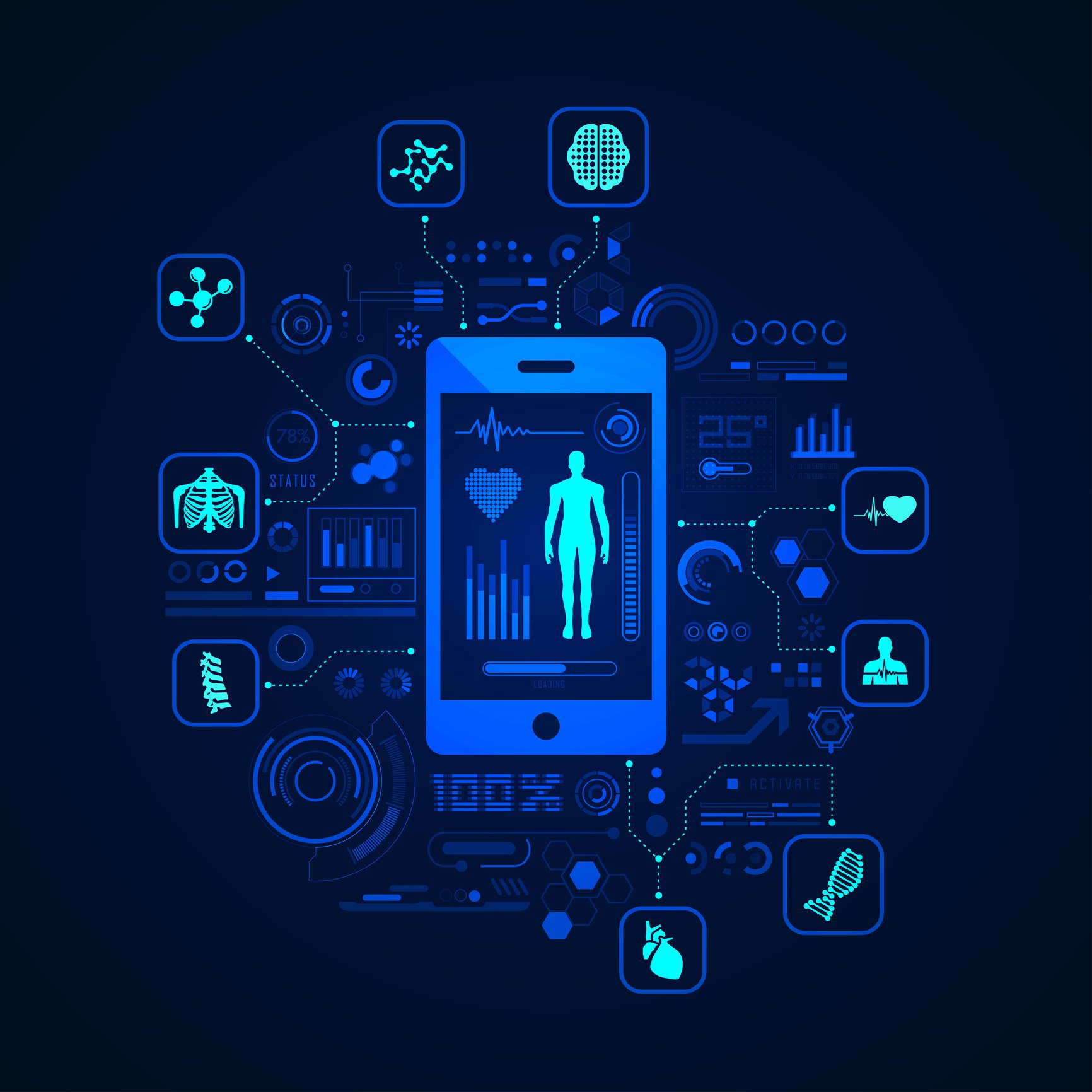In recent years, IT in healthcare management has become a hot topic among people everywhere. In the United States alone, 45% of people have used products like digital health apps and fitness trackers, according to Gallup research.
While it’s undeniable that these apps can make staying fit and keeping up with your dietary regimen much easier, they also present a potential risk to your data security.
These devices collect millions and millions of gigabytes of user data on a monthly basis. Even though a good number of companies behind these apps abide by HIPAA-sanctioned data protection guidelines, they can’t guarantee the safety of your personal information.
Today, we’re going to talk about electronic health record security, including how many health tracking apps actually collect user data, in what ways this data collection can affect your personal life, and the most effective data security tactics and best practices you can implement to better protect yourself.
How Many Apps Share Your Private Data?
Modern entrepreneurs have been transforming healthcare with IT for more than two decades. The resulting healthcare apps can now help with everything from tracking your prescriptions and fitness progress to measuring your blood pressure and heart rate in real time. However, a recent study from the BMI Journal has shown that these apps also pose a great risk to consumers’ privacy.
For this study, researchers took 24 random health tracking apps from the top 100 apps in the Google Play store and examined their data-protection capabilities. What they discovered was astounding: nearly 80% of the apps in question were shown to share data in ways that violated user privacy. In particular, many developers and their parent companies share user data with 3rd-party organizations, who, in turn, sell that data to 4th parties and so on.
How Data Collection May Affect Your Life
You may be thinking, “Sure, these apps may be collecting my personal data, but what company doesn’t do that nowadays?” This may be true; it may seem pointless to worry over health tracking apps when there are other apps that follow similar practices. However, it doesn’t benefit to ignore the dangers completely. Data collection can negatively impact your life in several ways over time, including the following:
All Your Basic Personal Information Gets Shared
App developers collect user information for data analytics, which helps them in improving their services. Unfortunately, the collected data is often shared with other companies, who then sell it to 4th-parties like Facebook and Oracle.
This shared data often includes all of your basic info, such as your name, age, gender, height, weight, email address, and more. Having this information shared may seem harmless on the surface, but it tells outside companies several details about you that can prove harmful if misused.
Your Personal Device Gets Overrun by Advertisements
Even though the apps you download may not cost you any money, the companies behind them still need some way to make a profit. Often, these so-called “freemium” apps earn their money by sharing your identifiable information with advertisers and allowing advertising networks to track your mobile device. At best, it can be a nuisance; you may find that you see more and more advertisements as you use the apps. However, these ads can lead to targeted ads, which monitor your online behavior in much more invasive ways.
Due to Poor Security, Your Data May Be Leaked At Any Time
More often than not, health tracking applications transmit data over insecure networks. What’s worse, some of them don’t even encrypt the data, making it far more vulnerable and easy to breach. If you think this won’t happen to you, just keep this fact in mind: in the biggest healthcare data breach last year, more than 25 million files were leaked. You can’t be too careful—it pays to fortify your data security however you can.
4 Electronic Health Record Security Methods
You can’t prevent development companies from collecting certain personal data, like your first name, surname, and email address. But, you can use certain tactics to reduce data collection. Let’s talk about data security methods and best practices for protecting your personal information.
1. Select Your Health Apps Wisely
Most healthcare IT experts recommend that you take some time to research the apps you’re interested in before you even download them. One way to do this would be to talk to your insurance agency and see which apps they recommend. Apps suggested by reputable sources of this kind are far more likely to follow security guidelines and fall under data privacy laws, and they may even prove to be more useful than some of the apps you might come across on your own.
2. Make Sure to Read the Privacy Policy First
If you decide to simply download a few apps without consulting anyone, you should still do a few things to protect yourself. Although it may seem obvious and simple, reading the privacy policy is one of the best practices in healthcare security. Be sure to check whether the company shares information with 3rd parties. If this is not clear in the policy, you should avoid the app.
3. Google the Company From Time to Time
You may find an app that appears to have a solid stance against data sharing. However, just because the privacy policy says that the company doesn’t share data with 3rd-parties doesn’t mean they won’t change the policy later on. As technology advances, so do the practices of individual companies, and the resulting changes can sometimes be for the worse. Make sure to research your app from time to time and see if there are any big developments you might’ve missed.
4. Check the Privacy Settings on Your Apps
Another thing you need to do as soon as you install any new app on your device is to check the privacy settings. Carefully examine the permissions the app is asking for. For example, some apps request very little access. However, if the app is asking to access your contacts, location, or microphone, you should take it as a red flag and stop using the app altogether.
Take Control of Your Electronic Health Record Security Now!
We’ve covered all the basics. In general, you’ve got all you need to know about your privacy security and electronic health records right here. If you don’t want to go over the entire article again, here’s a quick rundown:
- Make sure to research/check all apps before downloading them
- After you install an app, take the time to read its privacy policy
- Research the companies behind the health apps you’re using
- Go through the apps’ privacy settings and limit data collection
When it comes to data security, these are the best practices. That said, you can’t go wrong asking for additional help from the experts. If you are worried about data security in your practice, contact Scale Technology today. Ask for a meeting—we are happy to help you one-on-one. Let us give you the tools to improve the safety of your clients’ data in no time.



